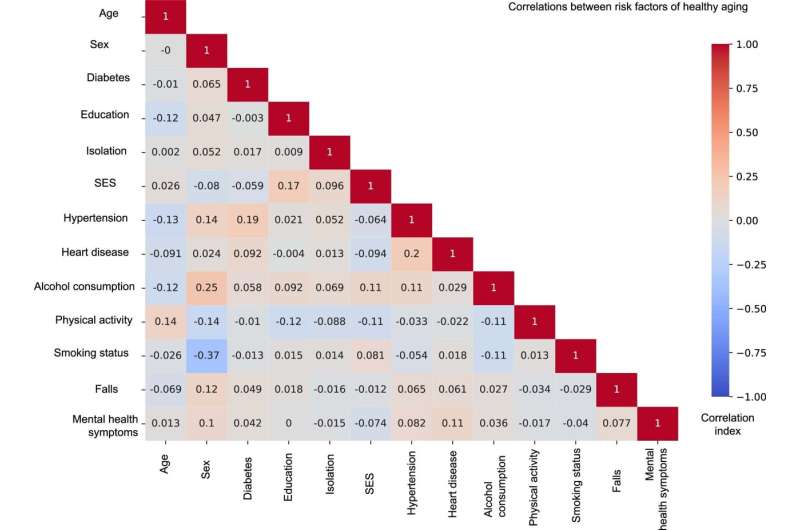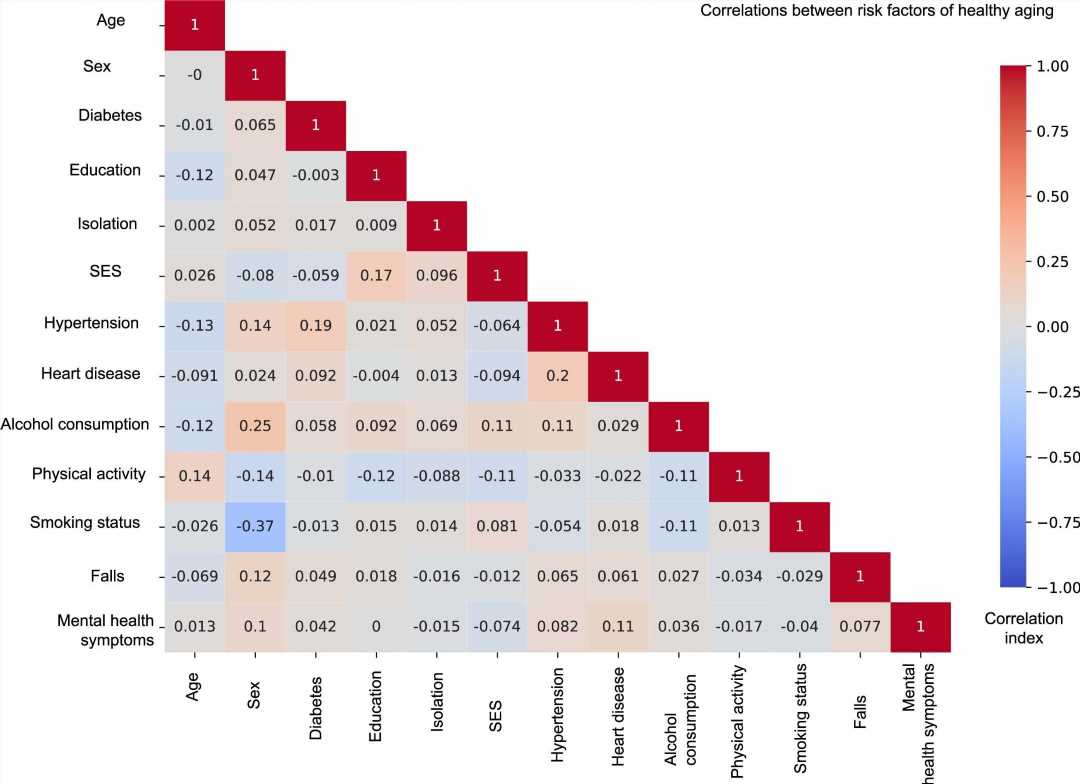
Researchers at Trinity College Dublin study the factors influencing healthy brain aging in Latin American and Caribbean (LAC) countries and find the lessons learned there, can also be applied to home.
Aging is not a uniform process across the globe. Most research into cognitive and functional aging has been conducted in the US and Europe, in high-income settings. Researchers from the Global Brain Health Institute (GBHI) at Trinity College are filling the knowledge gap that exists for Latin American populations on the factors associated with healthy aging. Their findings have been published in the journal Nature Medicine.
The study found that social/health disparities significantly influence healthy aging differentially across countries and regions. Researchers believe the same can be expected of other countries and regions, including Ireland.
Researchers set out to investigate the combined impact of social determinants of health (SDH), lifestyle factors, cardiometabolic factors, mental health symptoms and demographics (age, sex) on healthy brain aging across Latin American and Caribbean (LAC) countries with different levels of socioeconomic development. In LAC countries, there is an urgent need to assess regional diversity and deliver tailored evidence for diverse populations.
Previous studies in high-income countries (US and Europe) that capture risk factors of healthy and pathological brain aging were not accurate for low-income and middle-income countries. Assessing specific risk factors in LAC countries constitutes a critical priority for understanding healthy aging globally.
Dr. Augustin Ibanez, co-lead author of the study, GBHI Faculty at Trinity College and Director of the Latin American Brain Health Institute (BrainLat), said,”This study emphasizes that aging is influenced by more than just biological factors such as age and sex.”
“It suggests that other factors, such as social determinants of health, mental health symptoms, and cardiometabolic risks, profoundly impact healthy aging. While the study is specific to Latin American countries, it considers a new perspective for understanding aging in Ireland, encouraging a more holistic approach in considering all these factors.”
Researchers employed machine-learning models to analyze the complex interplay of factors associated with aging. The study’s findings suggest that a one-size-fits-all approach to understanding healthy aging is insufficient.
So, while the specific results in the Latin American context may not be directly applicable to Ireland due to cultural, socioeconomic, and environmental differences; the research methodology and overarching themes can be utilized to study aging in the Irish demographics. The use of machine learning models to analyze the complex interplay of factors can be applied to understand Ireland’s unique challenges and risks.
Dr. Ibanez, said, “This study provides a valuable lens to reconsider how we approach healthy aging in Ireland and highlights the need for region-specific, data-driven health strategies.”
Professor Brian Lawlor, Site Director, Global Brain Health Institute and Professor of Old Age Psychiatry, Trinity College, said, “This study enhances our understanding of the importance of inequities and the social determinants of health as drivers of brain health and aging, which is core to the mission of the Global Brain Health Institute (GBHI) based at Trinity College Dublin.”
“This research, led by Atlantic Fellow at GBHI and Trinity Faculty member Agustin Ibanez, highlights why we need to adopt diverse perspectives and avoid simplistic models of aging if we are to successfully tackle the challenges of aging and brain health on a global scale.”
More information:
Hernando Santamaria-Garcia et al, Factors associated with healthy aging in Latin American populations, Nature Medicine (2023). DOI: 10.1038/s41591-023-02495-1
Journal information:
Nature Medicine
Source: Read Full Article
